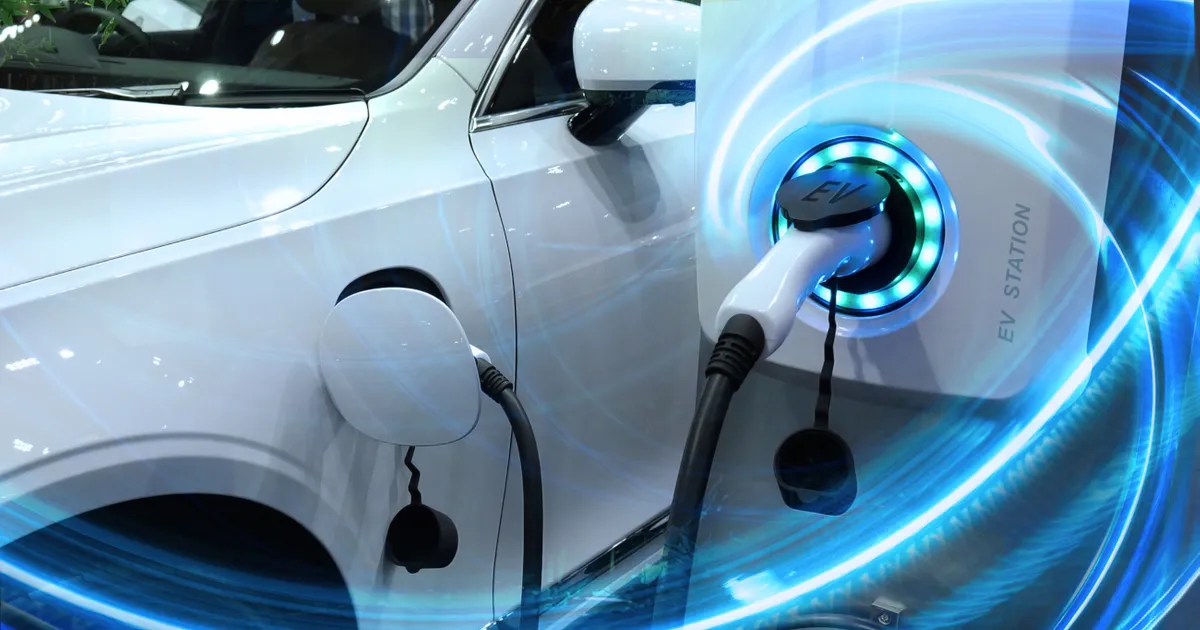Electric vehicles (EVs) are becoming increasingly popular, and for good reason. With advances in technology, electric cars have come a long way in terms of range, charging times, and affordability. If you’re considering purchasing your first EV, you may be wondering why you should make the switch. Understanding the many benefits of electric vehicles can help you determine if an EV is the right choice for your next car.
 Shutterstock: buffaloboy
Shutterstock: buffaloboyThe Pros and Cons of Owning an Electric Vehicle
Before diving into the benefits of electric vehicles, it’s important to consider the potential drawbacks. Like any major purchase, there are both pros and cons to owning an electric car.
Here’s a brief overview:
Pros:
- Lower operating costs compared to gas-powered cars
- Reduced carbon emissions and environmental impact
- Quieter and smoother driving experience
- Minimal maintenance requirements
Cons:
- Higher upfront cost compared to gas-powered cars
- Limited range and longer charging times
- Limited charging infrastructure in some areas
- Battery degradation over time
- Less variety in models compared to gas-powered cars
The Benefits of Electric Vehicles
There are many benefits to driving an electric car, though every driver’s priorities are different:
Benefit #1: Lower Operating Costs
One of the biggest advantages of driving an electric vehicle is the lower operating costs. EVs are much cheaper to operate than gas-powered cars, primarily because electricity is a much cheaper fuel source than gasoline.
Benefit #2: Reduced Environmental Impact
Another major benefit of electric vehicles is their reduced environmental impact. Unlike gas-powered cars, which emit harmful pollutants into the air, electric cars produce zero emissions. This can have a significant impact on air quality, particularly in urban areas where air pollution is a major health concern.
Benefit #3: Quieter and Smoother Driving Experience
Electric cars are known for their quiet and smooth driving experience. Unlike gas-powered cars, which can be noisy and jerky, electric cars operate quietly and smoothly. This can make for a more enjoyable driving experience, particularly on long trips.
Benefit #4: Minimal Maintenance Requirements
Electric cars require less maintenance than gas-powered cars. In addition to no oil changes or spark plug replacements, electric cars also have fewer moving parts that can wear out over time. This can result in lower maintenance costs and fewer trips to the mechanic.
The Potential Drawbacks of Electric Vehicles
While there are many benefits to driving an electric car, it’s important to consider the potential drawbacks as well. Here are a few things to keep in mind:
Drawback #1: Higher Upfront Cost
One of the biggest drawbacks of electric vehicles is the higher upfront cost. Electric cars are typically more expensive than gas-powered cars, primarily because of the cost of the battery. However, it’s worth noting that there are often government incentives and tax credits available to help offset this cost. In addition, as the technology continues to improve and become more widespread, the cost of electric cars is expected to decrease.
Drawback #2: Limited Range and Longer Charging Times
Another potential drawback of electric cars is their limited range and longer charging times. While many electric cars now have a range of over 200 miles per charge, this is still less than the range of most gas-powered cars. In addition, charging an electric car can take several hours, depending on the charging station and the size of the battery.
Drawback #3: Limited Charging Infrastructure in Some Areas
While the number of charging stations is growing, there are still some areas with limited charging infrastructure. This can make it challenging to take long trips in an electric car, particularly in rural areas or areas with fewer charging stations.
Drawback #4: Battery Degradation Over Time
Like all batteries, the battery in an electric car will degrade over time. This means that the car’s range will decrease over time, and eventually, the battery will need to be replaced. While the lifespan of an electric car battery can vary depending on factors like usage and climate, most batteries are expected to last between 8-10 years.
Drawback #5: Less Model Variety
While the number of electric car models is growing, there is still less variety compared to gas-powered cars. This can make it more challenging to find an electric car that meets all of your specific needs and preferences.
Is an Electric Vehicle Right for You?
Now that we’ve explored the pros and cons of electric vehicles, you may be wondering if an EV is the right choice for you. Ultimately, the decision will depend on your individual needs and preferences. Here are a few questions to consider:
- Do you have a relatively short commute and access to charging stations?
- Are you willing to pay a higher upfront cost in exchange for lower operating costs and reduced environmental impact?
- Do you prioritize a quiet and smooth driving experience?
- Are you eligible for any incentives or tax credits that could help offset the cost of an electric car?
- Does the limited range and longer charging times of electric cars fit your lifestyle and driving habits?
- If you answered yes to these questions, an electric car may be a great choice for your next vehicle.
Say Goodbye to the Gas Pump!
Electric vehicles are becoming increasingly popular, and for good reason. With lower operating costs, reduced environmental impact, and a quiet and smooth driving experience, electric cars offer a number of benefits over gas-powered cars.
While there are some potential drawbacks to consider, the decision to purchase an electric car ultimately comes down to your individual needs and preferences. By considering the pros and cons of electric vehicles and evaluating your driving habits and lifestyle, you can determine if an electric car is the right choice for you.